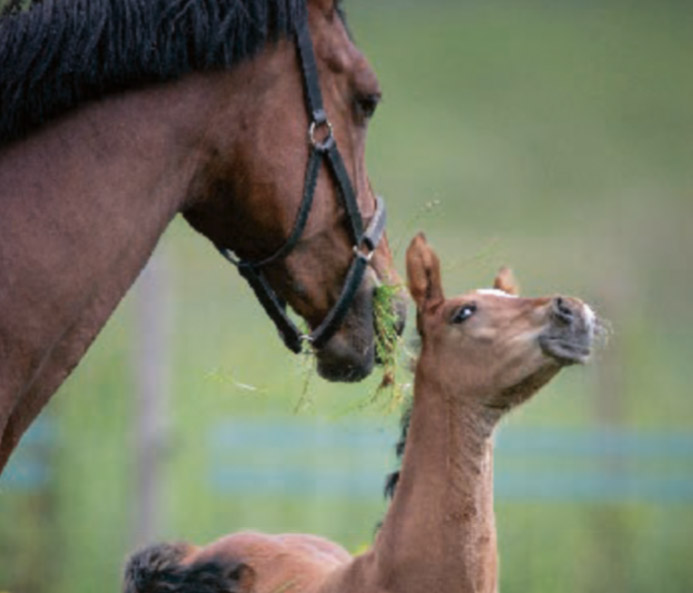Photo by Hippo Foto/Dirk Caremans
Insuring a foal, step by step
Author: David Ashby
Publication date: 21st October
My first foal arrived in early March this year. She was covered early in 2019 after aborting her foetus because of a twisted umbilical cord late in the pregnancy last year. This year the early birth date was doubly advantageous because the foal and mare were both examined by our vets in the normal way before movement restrictions imposed following the Corona Virus outbreak took effect.
Hence, the vet was able to confirm the foal healthy and acceptable for mortality insurance.
24 hours
The basic All Risk of Mortality (ARM) policy starts at 24 hours of age because it is felt that by that stage most foals are up and moving about, have nursed from the mare and are generally healthy. Depending on the Sum Insured Insurance companies may require a veterinary exam confirming the foal is healthy and insurers of higher value foals often require details of the IgG ( Immunoglobulin) level to confirm the foal has received adequate protection against invasive microorganisms which can easily lead to health problems and even death. It has been reported that up to 20% of newborn foals have inadequate protection and Insurers view the test as a wise precaution and evidence of good animal care. Some very high value foal policies may also require a Complete Blood Count (CBC ) be carried out. Giving insurers IgG and CBC test results makes the risk more appealing to an Equine Insurer and can lead to reduced premiums.
Premiums reduce
Once born foals can be insured at any time (assuming they are healthy) and premiums reduce as the foal becomes older, so for example, the premium is highest from 24 hours of age and falls at 7 days reducing again at 30 days and then then dropping to a normal mortality rate at 90 days or later.
Underlying problems
If a foal does have underlying health problems and insurance is required tell your insurer the problems and ask what their attitude and requirements are before incurring the cost of a detailed report from your vet.
Coronavirus
With the current movement restrictions because of the Coronavirus Outbreak Insurers understand that vets may be unable to visit and examine a newborn foal and anyone with foaling mares should check in advance what their vet surgeon is able or willing to do. Equally anyone who insures or plans to insure their foal should speak with their insurer and agree what evidence of health will be accepted to grant full coverage. It is important wherever possible to have full mortality cover on a foal and if an insurer will only offer restricted coverage because a vet exam has not been carried out it is wise to speak with another company and see if full cover can be obtained.
Embryos
Foal insurance can of course start much earlier than the day after the foal arrives, policies are available on embryos from when they are purchased at auction and before they are implanted in the recipient mare.
These are the most expensive policies but cover is also available once the pregnancy is established either in the maternal dam or in a recipient mare and the closer the mare is to foaling the cheaper the premiums become.
Not in foal
Stallion nomination terms vary, returnable if the mare doesn’t get in foal, is not in foal at a particular date, payable on a live foal and with the last option, it is vital to check when the stud fee is payable and whether it is returnable if a viable foal doesn’t result. I advise against taking a Stallion nomination payable when the foal ‘stands and nurses’ unless there is clarification, whether after having nursed the foal is healthy. Foals sometimes die after nursing once but are already suffering a problem that leads to death and make them uninsurable. This leaves the stud fee still to be paid and the breeder out of pocket with no foal.
WFFS
I haven’t talked about Warmblood Fragile Foal Syndrome (WFFS) but purchasing Foetus Insurance will mean the mare owner recovers the stud fee if it does occur.
In summary, the most comprehensive Insurance available is when a foetus is insured until a viable live foal results. Premiums reduce as the pregnancy progresses and cover is easily available from when a foal is 24 hours, 7 or 30 days of age. Looking at foals in the paddock everything looks happy but understanding the risks and following expert guidance can help soften the blow of a problem.
If you have any questions and/or comments regarding insurance matters, please contact us on telephone: +44 (0)208 968 8600 or email: [email protected].



